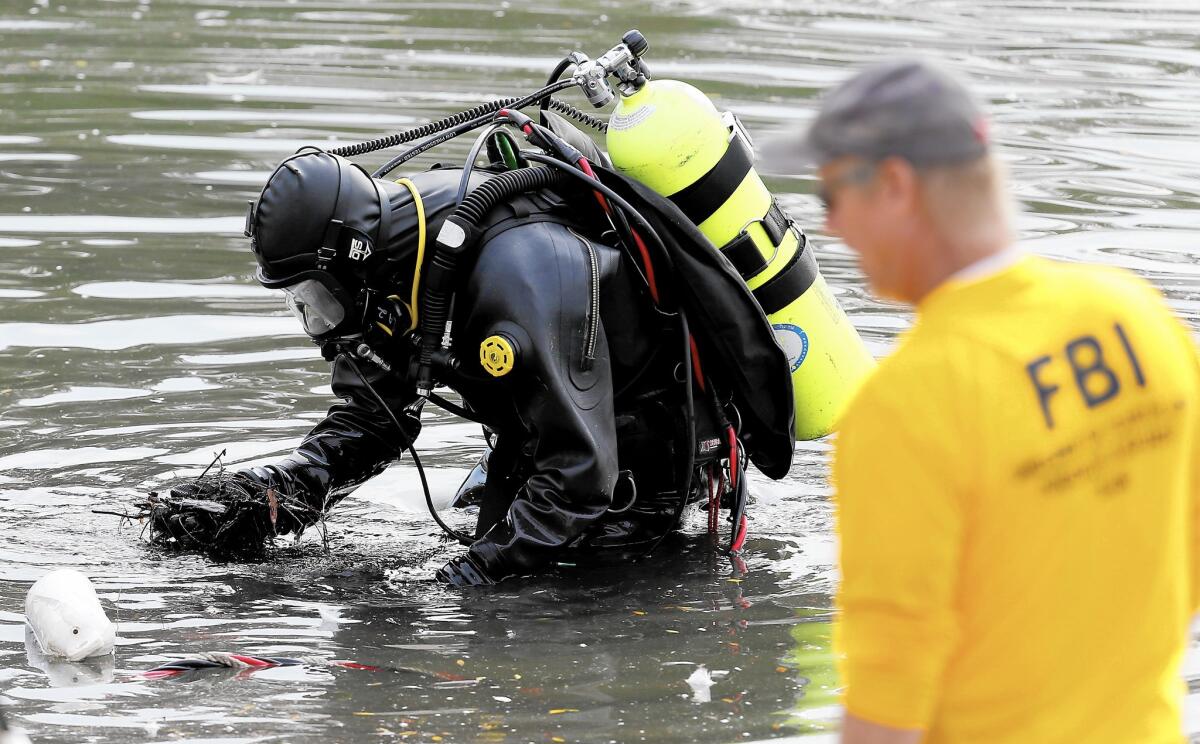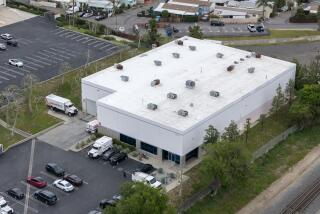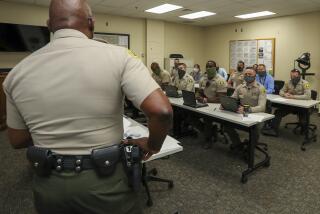If devices found in lake, strong chance San Bernardino attack investigators could recover data

An FBI dive team on Thursday searches for electronic devices or other evidence possibly left in Seccombe Lake, about two miles north of the Inland Regional Center in San Bernardino.
- Share via
FBI investigators on Friday were expected to continue their days-long search of a lake in San Bernardino for electronics discarded by the shooters in last week’s deadly terrorist attack. But whether any devices were actually left behind and what value they might hold remains unclear.
David Zimmerman, chief executive of Clearwater, Fla.-based data recovery firm LC Technology International, said investigators have a strong chance of accessing the data from any water-submerged digital devices even if they’ve been in there for more than a week.
NEWSLETTER: Get essential California headlines delivered daily >>
“The only real way to destroy this stuff is hit it with a hammer,” Zimmerman said. “Once you break that chip or disk, there’s no way to reassemble it. Brute physical damage is the only surefire way to damage it.”
Recovering data from a wet drive involves first drying it, sometimes by submerging it in different types of cleaning alcohols. Cleaning can be extra cumbersome in the case of saltwater immersion, which could lead to more corrosion on and around the hard drive that needs cleaning.
Next, investigators would determine if the device itself still works. The parts attached to a hard drive might get damaged by water, which is why a smartphone sunk in a toilet might never turn on again. But the hard drive or memory -- even if not inside an airtight, sealed compartment -- should remain intact. Fortunately, the connecting parts are replaceable.
Zimmerman’s firm uses a 3-D printer to build custom sockets and connectors that can copy data off drives and make the information searchable on computers. He said he’s trained FBI, military and other authorities on how to use similar processes.
“You could theoretically dry it off and put new parts on it, and it should work the way it did before it got tossed into the water,” Zimmerman said. “The electronics on the outside are theoretically interchangeable.”
The same goes with trying to use fire to melt a drive or blow it up. He’s seen drives come out of house fires with data unscathed. The best option is to be paranoid and “beat it to a pulp,” he said.
Essentially, the type and extent of damage inflicted can vary the chances of recovery from zero to “highly likely,” said Heather Skinner, a spokeswoman for hard drive maker Western Digital.
On Dec. 2, married couple Syed Rizwan Farook and Tashfeen Malik opened fire on a holiday party at the Inland Regional Center in San Bernardino, killing 14 and injuring several more. They were killed hours later in a police shootout.
Chat with me on Twitter @peard33
MORE ON SAN BERNARDINO
Loan to San Bernardino shooter draws scrutiny to online lending industry
FBI searches lake in San Bernardino terrorism probe; questions over what neighbors saw
Survivors and victims’ family members help California Democrats put a face on gun violence







